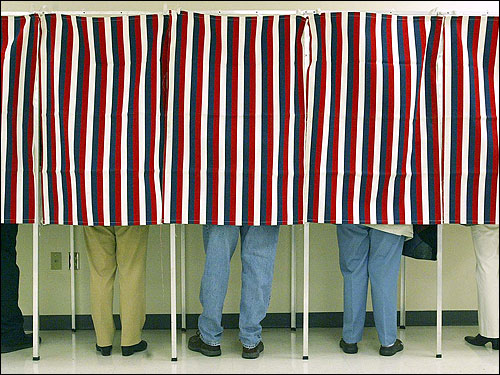We retired Tax Justice Blog in April 2017. For new content on issues related to tax justice, go to www.justtaxesblog.org
 Despite being an off-year election, there were a few significant tax policy issues at stake in the elections held this week in Colorado, Minnesota, New Jersey, Ohio, Texas, Virginia, and New York City.
Despite being an off-year election, there were a few significant tax policy issues at stake in the elections held this week in Colorado, Minnesota, New Jersey, Ohio, Texas, Virginia, and New York City.
Ballot Measures
Colorado voters rejected Amendment 66, which would have raised $950 million in new tax revenues for education each year by converting the state’s flat rate income tax into a more progressive, graduated rate tax.
Colorado voters approved Proposition AA, imposing a 25 percent sales and excise tax rate on recreational marijuana, which voters legalized one year ago. This 25 percent tax will be stacked on top of the 2.9 percent statewide sales tax and any local sales taxes (which average 3.2 percent).
Texas voters approved three very narrowly tailored tax breaks. Those breaks will benefit disabled veterans, surviving spouses of military members, and manufacturers of aircraft parts.
While residents of Minnesota and Ohio didn’t vote on any statewide ballot measures this week, most of the local school tax levies on the ballot in those two states were approved by voters.
Major Candidates with Tax Plans
New Jersey residents voted to keep Governor Chris Christie in the governor’s mansion, rather than replace him with Democrat Barbara Buono. Buono’s tax platform included raising taxes on incomes over $1 million and reversing the cut in the state’s Earned Income Tax Credit (EITC) that Christie signed in 2010. Christie, by contrast, has said he wants to cut income taxes across the board.
Virginia voters chose Democrat Terry McAuliffe over Republican Ken Cuccinelli to be their state’s next governor. Both candidates ran on a platform of reducing or eliminating local business taxes, though neither specified how to offset the resulting revenue loss. Cuccinelli also said that, if elected, he would have pushed for regressive personal and corporate income tax cuts, as well as a spending cap similar to Colorado’s TABOR law.
New York City residents elected Democrat Bill de Blasio over Republican Joe Lhota in the city’s mayoral race. De Blasio wants to expand pre-K education in the city by raising taxes on incomes over $500,000, but it’s not clear whether Governor Cuomo—whose approval would be needed for the tax increase—will support such a change.